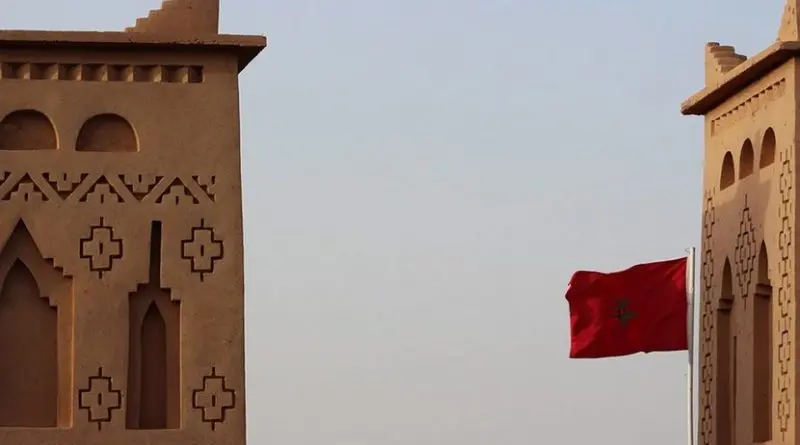On the global stage at the United Nations General Assembly, Morocco’s Head of Government, Aziz Akhannouch, reaffirmed a critical message: the resolution of the Sahara issue is rooted firmly in Morocco’s autonomy initiative, a proposal that holds the promise of lasting peace and regional development. In a world often plagued by prolonged conflicts, this initiative offers a pragmatic solution that has gained steady support from the international community. More than just a diplomatic framework, Morocco’s autonomy initiative is a cornerstone of regional stability and economic progress.
For years, the Kingdom of Morocco has championed a peaceful resolution to the artificial dispute over the Sahara. His Majesty King Mohammed VI has repeatedly underscored Morocco’s steadfast commitment to this approach. At the core of this initiative is a political process defined by the United Nations and embraced by a broad range of international actors, but its success hinges on the full participation of all stakeholders, especially Algeria. Any solution that excludes the roundtable format, which includes Algeria as a key participant, is doomed to fail. The autonomy plan is not just a Moroccan proposal but a viable, internationally backed path toward peace.
The message from the UN General Assembly was clear: the autonomy initiative is the only realistic and sustainable option. Akhannouch’s declaration underlined Morocco’s unshakeable stance that no political process is possible outside this framework, and any serious effort requires the cessation of hostilities by armed militias, a condition that the Security Council has consistently endorsed. The international community is increasingly aligning itself with Morocco’s approach, recognizing that this pragmatic solution is the only way forward.
The backing for Morocco’s sovereignty over the Sahara continues to grow. Countries from across the globe have voiced their support for the autonomy initiative, which envisions the Sahara as an integral part of Morocco, enjoying broad autonomy. This wave of international recognition sends a strong message to all parties: the time has come to advance towards a political solution based on the autonomy plan. Only through this route can we unlock new horizons for development across the entire region.
But this initiative is more than just a political framework. It represents a vision for the future—one that offers economic prosperity and stability. The southern provinces of Morocco have experienced unprecedented development, benefiting from the new development model tailored specifically for these regions. Projects in infrastructure, education, healthcare, and renewable energy have transformed the region, making it one of the most vibrant growth areas in the Kingdom. The autonomy plan promises to build on these successes, offering hope and tangible improvements to the lives of people in the Sahara.
Equally important is the role of the Saharan people themselves. Through their democratically elected representatives, they actively participate in Morocco’s political and socio-economic life, affirming their deep attachment to the Kingdom’s territorial integrity and their identity as Moroccans. This local engagement is a powerful testament to the strength of Morocco’s approach and its commitment to inclusive governance.
The autonomy initiative is not just about ending a regional dispute; it is about creating a brighter future for the entire Maghreb region. By embracing this solution, Morocco is setting the stage for greater cooperation, shared prosperity, and a peaceful resolution that benefits all parties. The world is watching, and the momentum is building. As more nations rally behind Morocco’s initiative, it becomes clearer that this is the path forward.
As Morocco continues to champion this initiative, the message remains consistent: peace, stability, and development in the Sahara are inseparable from the autonomy initiative. The international community, the United Nations, and even countries previously neutral are beginning to acknowledge that Morocco’s vision is the only viable way to resolve the conflict. It is now up to all parties, especially Algeria, to join the dialogue in good faith and commit to a solution that will benefit not just the Sahara, but the broader region.
The road ahead is challenging, but Morocco’s leadership under King Mohammed VI offers a beacon of hope for sustainable peace. The autonomy initiative, supported by international consensus, presents an unparalleled opportunity to turn a page on this long-standing issue and move towards a future marked by stability, unity, and shared prosperity. Now is the time to act, before the region loses more opportunities to harness its full potential.
In a volatile world, Morocco’s commitment to a peaceful and pragmatic solution for the Sahara sets an example of leadership, vision, and hope. The autonomy initiative is not just a proposal—it is the key to unlocking a future of lasting peace and development for the region. The international community must seize this moment, and together, move toward a final resolution that will benefit the people of the Sahara, Morocco, and the broader region.

